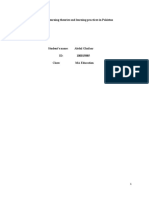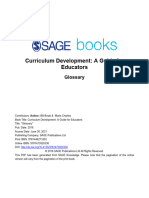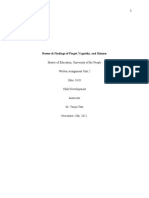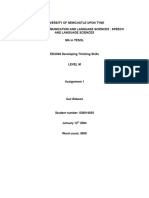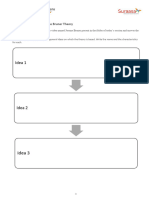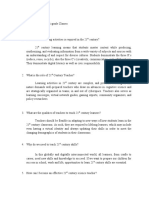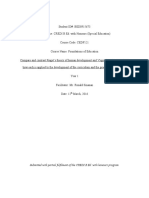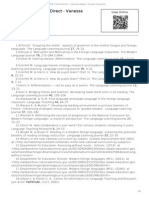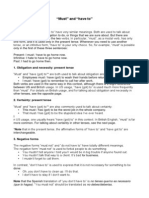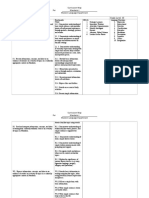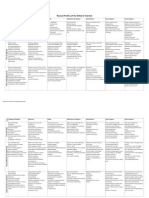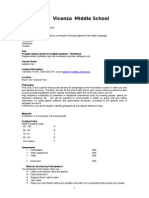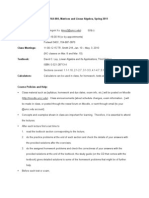2015/2016
Pre-Course task - Child Development
You have been given a list of pre-course reading:
1. Donaldson, M., 1971. Childrens Minds. Glasgow: Fontana/Collins.
2. Barton, G., 2012. Dont Call it Literacy! Abington Oxon: Routledge.
3. Capel. S. Leask., M., 2013. Learning to teach in the secondary School: A
Companion to School Experience. 6th ed. London: Routledge Falmer.
4. Dillion, J. et al., 2011. Becoming a teacher: Issues in Secondary Teaching.
Maidenhead: Open University Press.
5. Fleming, P., 2012. Becoming a Secondary School Teacher: How to make a success
of your Initial Teacher training and Induction. London: Routledge
6. Hattie, J. Yates, GCR., 2013. Visible learning and the science of how we learn.
London: Routledge
7. Hramiak, A. Hudson, T. 2013. Understanding Learning and Teaching in Secondary
Schools. Abington Oxon: Routledge.
8. Palmer, J. A. 2001. Fifty Modern Thinkers on Education. From Piaget to the
Present. Abington Oxon: Routledge.
Reflective Practice
1. Bolton, G., 2010. Reflective Practice: Writing and Professional Development. 3rd ed.
London: Sage
2. Pollard, A., 2014. Readings for Reflective Teaching in Schools. 2nd ed. London:
Bloomsbury
(Particularly chapter 2 for the pre-reading task.)
Using your knowledge from these texts and reliable websites such as
www.simplypyschology.org please research on the following educational theorists.
Guidance questions are provided. High standards of literacy are expected. This research
develops you knowledge of standards 2d, 3c,4a,5c,7c,8d and will support your
reflective journal and assignments across the year. Wherever possible, try to link the
theory to your own observations and experiences.
The task will help you to identify the areas upon which theorists agree/disagree; it will
also show your understanding of key ideas related to the ways children learn. Email your
response to kconroy@billericay.essex.sch.uk by 24.8.15.
When citing references we use the Harvard System introduced by Anglia Ruskin
University. Please ensure you use this system found at
http://libweb.anglia.ac.uk/referencing/harvard.htm
1 of 3
�2015/2016
J Piaget research
Guidance questions
Q1
Give a brief profile then report how Piaget described the reason for, and nature of,
the childs interactions with the environment?
Q2
What is a schema and how does it help the child to achieve equilibrium?
Q3
Briefly report on his stage theory.
Q4
What evidence of the impact of his findings may be found in classrooms today?
Q5
What criticisms today may be justly directed at his findings?
__________
L Vygotsky research
Guidance questions
Q1
Give a brief profile then report on Vygotskys theories about intellectual
development.
Q2
What was his stance on the importance of language in this process?
Q3
How did he suggest social interaction facilitated learning?
Q4
In what crucial manner did his theories differ from those of Piaget?
__________
N Chomsky research
Guidance question
Q1:
What natural skills does Chomsky suggest all humans possess that link with the
work of Piaget, Vygotsky and Bruner?
__________
J Bruner research
Guidance questions
Q1
How does the work of Bruner and colleagues link with Vygotskys theories?
Q2
In the light of these various connections, what do you feel might be the implications of
impaired language in the learning process?
__________
H Gardner research
Guidance questions
2 of 3
�2015/2016
Q1
What is the basic thesis of Gardners work?
Q2
What are the implications for pedagogy?
__________
J Hattie research
Guidance question
Q1
According to Hattie, what are the attributes of schooling that really make a
difference to pupil learning?
__________
General child development research
Guidance questions
Q1
What do you see as the implications of behaviourism for the role of the teacher?
Q2
Identify from your own experience some examples of how your learning was (or
is) influenced by your cultural circumstances, social relationships and activities.
How might this apply to the pupils you teach?
Q3
What insights can neuroscientific research provide for teachers into the nature of
learning?
Q4
How can the development of thinking skills be promoted in your subject?
3 of 3




















